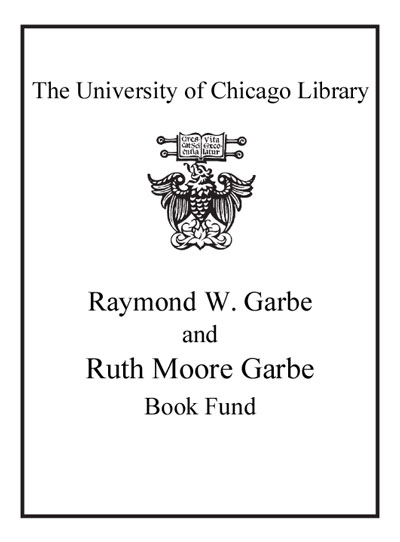Review by Booklist Review
A rector and the three generations of women he loves are at the heart of Craig's fascinating and meticulously researched debut novel. Pierre Clergue, short of stature and plagued by a frail hip, sees clerical life as his only option, even though he lusts after his brother's lover, Marquise. After his brother abandons the pregnant Marquise, Pierre baptizes her child, Fabrisse. Many years later, Pierre, now a rector in the village of Montaillou, embarks on his first affair and is introduced to the Good Men, heretics who believe in the separation of the body and the soul. Fabrisse marries a Good Man, and their marriage disintegrates under the weight of his strict beliefs, and he finally kills himself in order to achieve the highest status among the Good Men. Their daughter, Grazida, catches the eye of Pierre. But a Dominican friar, Bernard, dedicated to rooting out heretics, is convinced that Pierre sympathizes with the Good Men and is determined to bring about the rector's downfall. A fascinating work inspired by the actual testimony of Grazida. --Kristine Huntley
From Booklist, Copyright (c) American Library Association. Used with permission.
Review by Publisher's Weekly Review
Chronicling the uncertainties and ethical crises of a village rector in early 14th-century France who struggles as much with his bodily yearnings as with his spiritual needs, this heady novel draws on depositions given during the French Inquisition to fictionalize the strange story of the Cathars, a Christian sect of medieval southern France. When the Cathars, or the Good Men, as they are known, enter rector Pierre Clergue's village of Montaillou, professing Satan's creation of all things mortal and preaching the renunciation of the flesh, Clergue, who has suffered mentally and physically from degenerative hip disease since age 11, is drawn to their teachings. In particular, he is strengthened by their determination to renounce women. And yet, like his masters, his renunciation of the flesh makes human communion even more tempting, and he finds he cannot help surrendering to his desire for Grazida Lizier, the 15-year-old daughter of his brother's bastard child. Although Craig relies a bit too heavily on biblical allusions to get her point across an inquisitor, Bernard, is left, like Moses, as a babe "planted among the reeds" her use of alternate vantage points creates a believable, poignant story based on themes of religious conviction and spiritual crisis. Her splendid use of imagery and fully fleshed out characters add depth to the novel, as do period details. The density of the material means the book will be best appreciated by those with some knowledge of the period, but resolute general readers will be helped along by several sharp and satisfying plot twists. Foreign rights sold in Denmark, Finland, France, Holland, Italy. (Jan.) (c) Copyright PWxyz, LLC. All rights reserved
(c) Copyright PWxyz, LLC. All rights reserved
Review by Library Journal Review
Tried by the Inquisition in 1320, Grazida Lizier left testimony that serves as the basis for Craig's first novel. Foreign rights have already been sold to five countries, and the publisher has great expectations for this book. (c) Copyright 2010. Library Journals LLC, a wholly owned subsidiary of Media Source, Inc. No redistribution permitted.
(c) Copyright Library Journals LLC, a wholly owned subsidiary of Media Source, Inc. No redistribution permitted.
Review by Kirkus Book Review
A somewhat creaky debut true-life historical: part romance, part legal thriller, and a tour of some of the darkest corners of early Christianity. Pierre Clergue is a confused priest of the 14th century who loves God, but women as much or more. He abuses his position in the town of Mantaillou to engage in a number of clandestine affairs, none quite matching up to his first unrequited love for a woman named Marquise, who has a girl child by Pierre's brother. This girl goes on to have a relationship with Pierre for virtually her entire life, eventually mothering another girl, whom Pierre begins to lust after when she is only seven. This girl, nicknamed Echo, is an echo in more ways than one: she looks like Marquise. The bad news is that everyone is related. Meanwhile, some pre-Spanish Inquisition inquisitions have begun-all approved by a series of actual popes-and a Dominican friar named Bernard is certain that Pierre is up to no good and becomes obsessed with seeing him burn so as to save him. Pierre once sells out the entire town to save his own self, yet miraculously no one implicates him as a heretic. Still, trouble brews again when Echo becomes pregnant by Pierre: Will the lovers' true love survive both pregnancy and Inquisition, or will Bernard's sadistic Christianity win out? The early descriptions of romance are strained-talk of male "members" never stops being clumsily euphemistic-and although things begin moving when people start getting burned at the stake, a continued switching back and forth in time to cover multiple points of view makes for exhaustively repeated information. A tendency to linger over characters' lives also smacks more of scholarly biography than of character development. Trying to be fiction using the lever of history, The Good Men ends up as history clouded by invention. These characters really lived, yet they don't come to life here.
Copyright (c) Kirkus Reviews, used with permission.
Review by Booklist Review
Review by Publisher's Weekly Review
Review by Library Journal Review
Review by Kirkus Book Review

